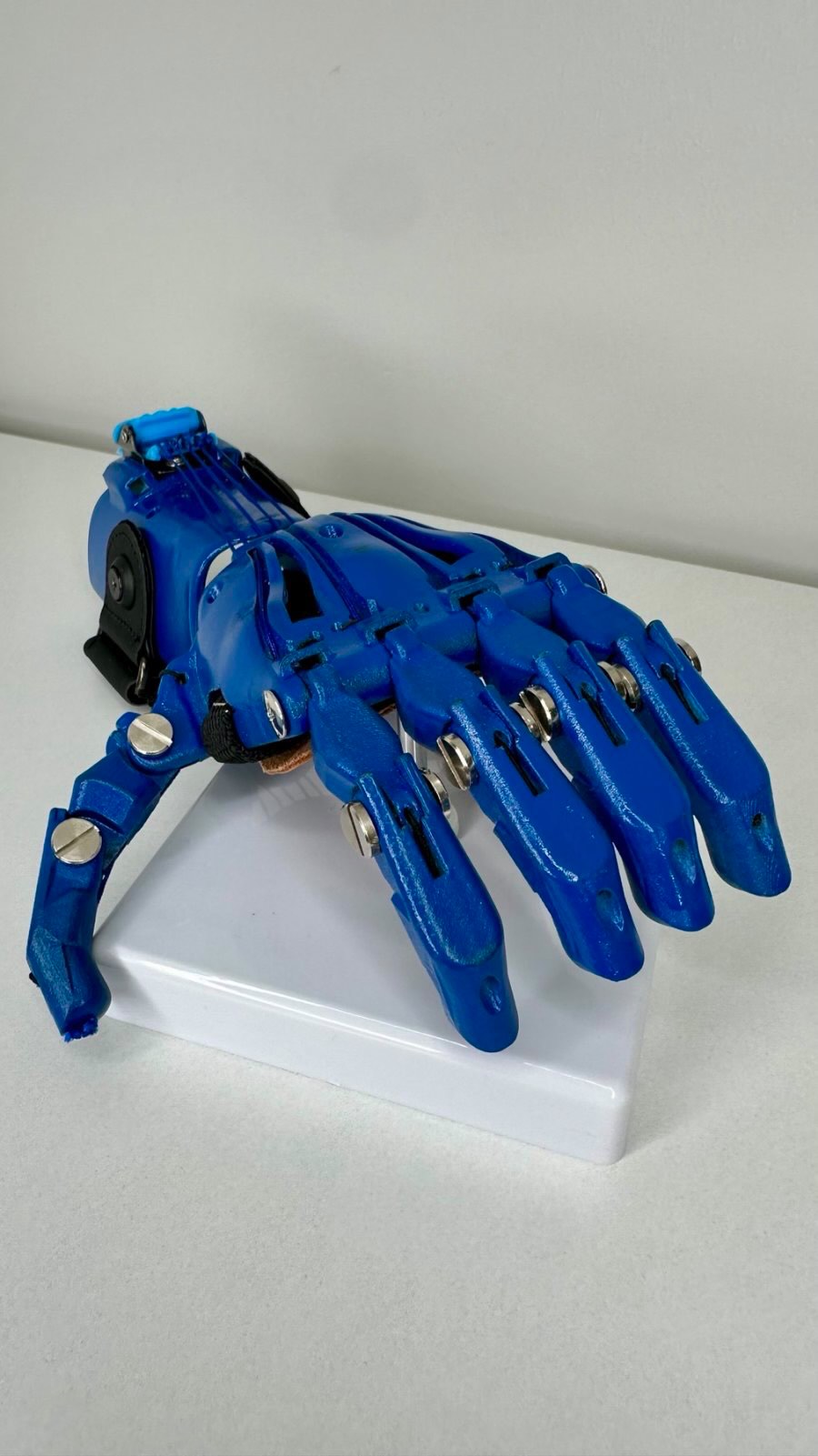Empowering Rehabilitation Through Additive Manufacturing:
ADDform’s Role in Creating a 3D-Printed Prosthetic Hand
A Partnership for Positive ChangeADDform recently partnered with a leading rehabilitation company in Estonia to bring cutting-edge 3D printing technology into the field of personalized prosthetics. The collaboration focused on producing functional components for a 3D-printed prosthetic hand, shown above — a remarkable example of how advanced manufacturing can improve lives.
From Vision to Reality
The Estonian rehabilitation specialists designed a prosthetic hand aimed at providing comfort, adaptability, and functionality for patients undergoing physical rehabilitation or limb replacement therapy. To achieve the required mechanical performance and aesthetic quality, they turned to ADDform’s expertise in Multi Jet Fusion (MJF) technology.
ADDform was responsible for manufacturing the prosthetic’s structural and joint components using HP’s Multi Jet Fusion process, a high-precision 3D printing method ideal for durable, lightweight parts. The MJF-produced components offer: Superior strength-to-weight ratio, ensuring the prosthetic is robust yet comfortable.Smooth surface finish, reducing friction and improving wearability.Dimensional accuracy, crucial for seamless assembly and realistic motion.Customization potential, allowing each part to be tailored to individual patient needs.
The Technology Behind the Innovation
The prosthetic hand’s intricate mechanical design required precise manufacturing tolerances that traditional fabrication methods struggled to achieve. MJF technology provided the solution, enabling efficient production of complex geometries with internal channels and moving components directly from digital models.
Using advanced PA12 nylon material, ADDform ensured the parts met the demands of medical-grade reliability — resistant to stress, impact, and long-term use.
Supporting Sustainable and Accessible Healthcare
Beyond the technical achievement, this project embodies a shared vision: making advanced rehabilitation tools more accessible, affordable, and sustainable. Additive manufacturing eliminates the need for expensive molds and tooling, reducing material waste and production time. This efficiency allows rehabilitation centers to iterate faster, test new designs, and deliver personalized prosthetics at a fraction of traditional costs.
Looking Ahead
The success of this collaboration is a testament to how digital manufacturing and healthcare innovation can combine to enhance patient independence and quality of life.
October 16, 2025
Prosthetics
N/A
